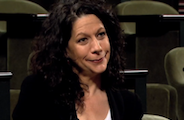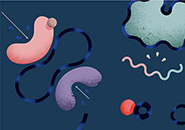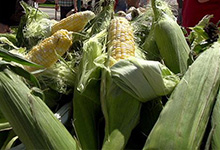
Scientific Discipline
Physical Science, Biomedicine
Related Links
Host Institution
Arizona State University
Current Research
Virtual Exploration of Earth's Evolution
Biography
Ariel Anbar is a scientist and educator interested in Earth’s evolution as an inhabited world, and the prospects for life beyond. His major research focus is the deep time history of oxygen and bioessential metals in the oceans, as deduced from the application of novel techniques in isotope geochemistry to ancient sedimentary rocks. Trained as a geologist and a chemist, Anbar’s major scientific achievements are rooted in the development of geochemical analytical methods and their application to geoscience, astrobiology, and biomedicine.
His research is grounded in the practices of isotope geochemistry—a branch of geoscience in which careful and precise measurement of isotope ratios is used to learn about the world. He pioneered the study of natural variations in isotope compositions of transition metals arising from isotope fractionation, using a then-novel mass spectrometry technique (ICP-MS). Such isotope variations were well known for the light elements (hydrogen, carbon, oxygen, nitrogen, sulfur), but were thought too small to measure for heavier elements. He and others showed they are common—discovering variations in molybdenum isotopes and exploring others, and establishing a new subdiscipline in isotope geoscience.
Anbar applied these new isotope systems and other methods to examine changes in dissolved oxygen and in the availability of bioessential trace metals in the ancient oceans. Among the highlights of this work: A series of research articles that reported the discovery of evidence of a “whiff” of oxygen in rocks deposited 2.5 billion years ago—100 million years before the environment was pervasively oxidized. This discovery suggests that biological production of oxygen and its accumulation in the atmosphere are not tightly coupled, which has implications for our understanding the ways by which the evolution of life affects planetary environments. More recently, his group began to explore calcium isotope variations in blood and urine as a biomarker of metabolic bone disease. In collaboration with clinicians at the Mayo Clinic, his team is now assessing the use of such tests to diagnose multiple myeloma, and metastatic breast and prostate cancers.
Anbar has developed a vigorous science education program to develop and assess innovative and online STEM education resources. The idea behind this program is that online education can solve many problems of large-scale science education today, but only if online delivery is treated as a novel medium for teaching that enables pedagogical and curricular approaches that are otherwise not practical.
He counts as his most notable teaching achievement development of the online class, Habitable Worlds, designed from the start as a path-breaking online course aimed at satisfying the science requirements of non-STEM majors. It features an integrative curriculum centered on the search for life beyond Earth, spanning physics to sustainability. This curriculum is tied to a novel pedagogy that organizes coursework around a game-like online activity in which students must find an inhabited world in a field of stars. This inquiry activity motivates mastery of the concepts needed to progress, via a series of tutorials that are also designed to be interactive, inquiry-driven experiences. The course has been offered online five times and has reached more than 1,500 students.



